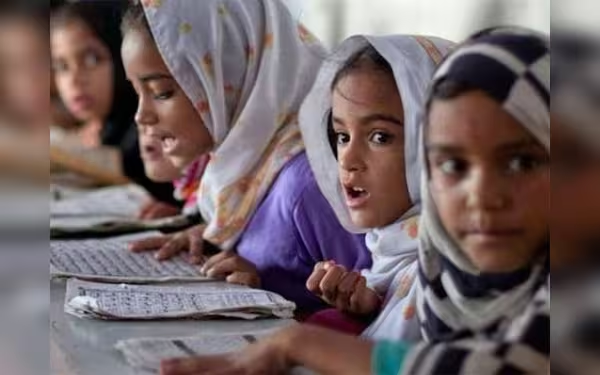Saturday, November 16, 2024 07:37 PM
Punjab Education Department Considers School Privatisation
- Punjab government plans to privatise middle and high schools.
- Approximately 500 schools to be available for private management.
- Concerns raised over accessibility for lower-income families.
 Image Credits: tribune.com.pk
Image Credits: tribune.com.pkPunjab government considers privatisation of middle and high schools to improve education quality and provide more choices for parents.
The education landscape in Punjab is on the brink of a significant transformation as the provincial government considers the privatisation of middle and high schools. This move comes in response to ongoing challenges in the public education sector, including overcrowded classrooms, insufficient resources, and a pressing need for improved educational outcomes. By privatising these schools, the government aims to enhance the quality of education and provide parents with more choices for their children’s schooling.
According to recent announcements, the education department plans to release a list of middle and high schools slated for privatisation within this month. By the end of November, approximately 500 schools will be made available for private management. This initiative is expected to attract private investors who can bring in innovative teaching methods, better facilities, and a more focused approach to student learning.
Supporters of this initiative argue that privatisation could lead to improved educational standards. They believe that private entities often have more flexibility and resources to implement effective teaching strategies and maintain school infrastructure. Furthermore, with the introduction of competition among schools, it is anticipated that the overall quality of education will rise, benefiting students across the board.
However, this proposal has not been without its critics. Opponents express concerns that privatisation may lead to increased fees, making quality education inaccessible for lower-income families. They argue that education is a fundamental right and should remain a public service, ensuring that all children, regardless of their economic background, have access to quality schooling.
As the government moves forward with this plan, it is crucial for stakeholders, including parents, educators, and policymakers, to engage in constructive dialogue. The success of this initiative will depend on how well it addresses the concerns of all parties involved. It is essential to ensure that the privatisation process is transparent and that measures are in place to protect the interests of students and their families.
The potential privatisation of middle and high schools in Punjab represents a pivotal moment in the province's educational journey. While the promise of improved quality and innovation is enticing, it is vital to approach this change with caution and consideration for all students. The future of education in Punjab hinges on finding a balance between public service and private investment, ensuring that every child has the opportunity to succeed.













